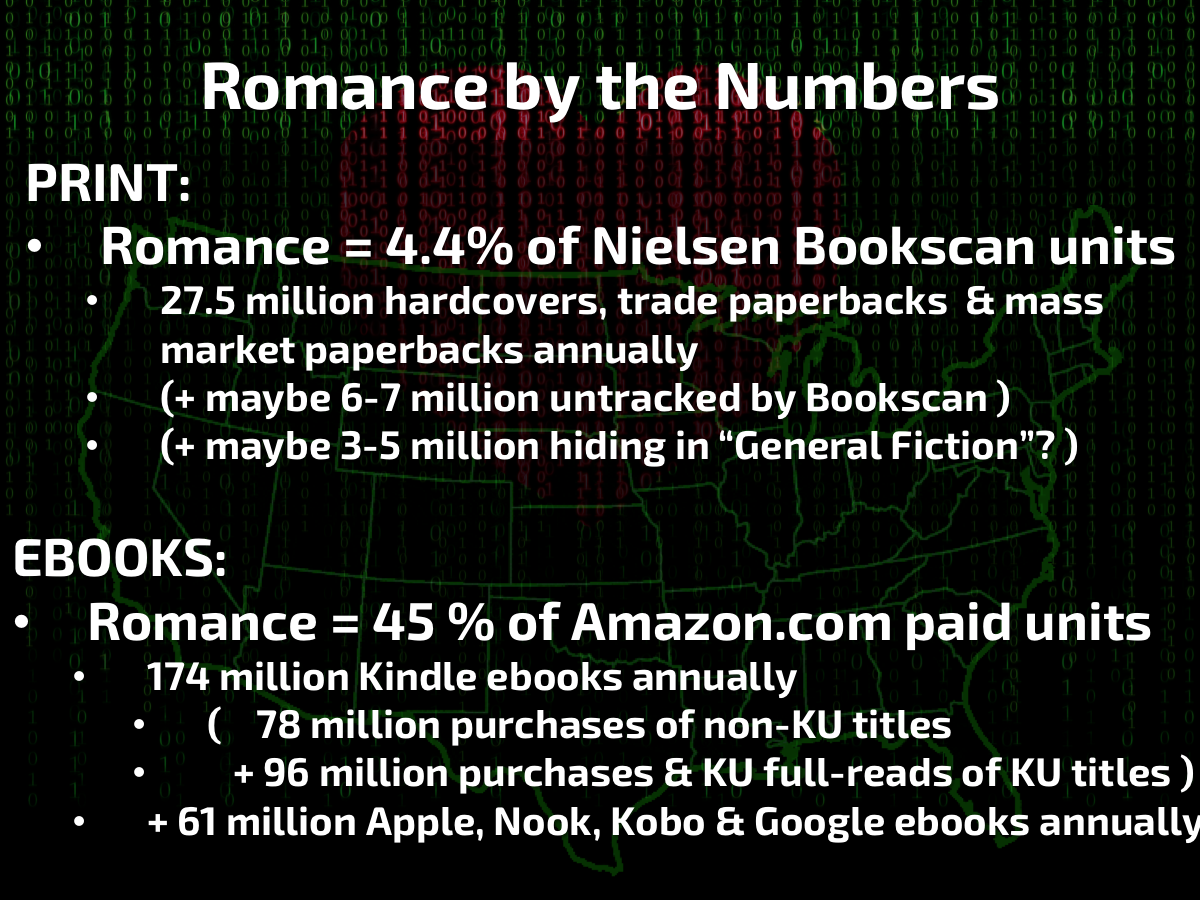Author Earnings is at it again, this time sharing crucial information on the state of romance publishing at the recent Romance Writers of America conference. Romance publishing–even before the advent of self-publishing and digital publishing–has always had this stigma attached to it, as though the work of these talented authors amounts to nothing more than a source of funds that let publishers pay for the “real” literature.
The joke’s on them. As Author Earnings’ data has shown, romance titles, especially those written by indie authors, are doing more than just keeping the lights on. As the carefully culled sales data shows, of the annual fiction sales of 423 million units, about 235 million of those titles were romance. But wait…that’s just the ebooks (remember? those pesky little digital files that critics argued would never take off?). What happens when you look at the print sales, which are by a large margin sold more by traditional publishers than self-pubbed authors?
In print, non-fiction actually outsells fiction (327 million units vs 307 million units), and of the fiction sales, romance only accounted for 27.5 million units. That tells us that traditional publishers are selling print titles, but they’re not selling romance.
Of all the ebooks sold on Amazon last year, 45% of them were romance, which includes either purchases or full-reads of Kindle Unlimited titles. But this is just the ones that got reported. What stops a book from being tracked by the publishing industry? Lack of a formal ISBN number, for starters. With 89% of the romance titles sold being ebooks, and with more than 50% of the authors who wrote those books being self-published, Author Earnings has concluded that around 67% of the sales happening on Amazon are not being watched or counted by the industry.
The rest of the data points contained highly detailed and critical information for authors and publishers alike. It looked at sales determined by price points, how the number of titles authors had in their catalogs affected sales, and even how sales were impacted by the frequency with which an author released new titles. Of course, there was a lot of information on how Kindle Unlimited status impacted an author’s income, as well as how authors fared if they chose a blend of KU and non-KU titles in their catalogs. The data even picked apart book length and whether or not the books were in a series, and how those factors impacted sales.
One thing can be said that summarizes the entire presentation: romance authors are doing really well, and the top-tier authors have this all down to a science. The rest of the book industry would do well to take a lesson from the authors who are actually making an income from this, and remember that it’s ultimately the readers who’ve made them successful.
Mercy Pilkington is a Senior Editor for Good e-Reader. She is also the CEO and founder of a hybrid publishing and consulting company.

